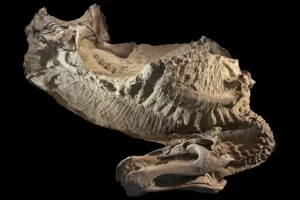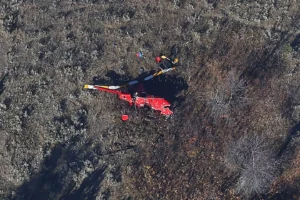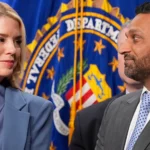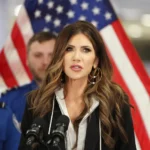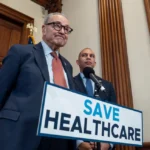UW Releases Report Defining Freedom of Expression on Campus
Recommendations include clear statement of principles, institutional neutrality and academic freedom
- Published In: Other News & Features
- Last Updated: Jul 03, 2023
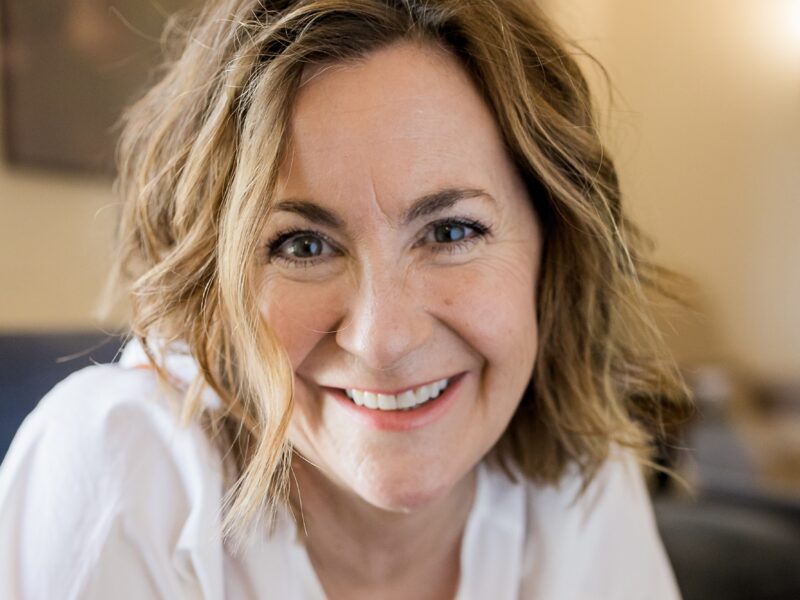
Pictured above is Martha McCaughey, a visiting researcher and co-chair of the University of Wyoming's Freedom of Expression Working Group. She hopes the recommendations will be adopted and help shape UW as a national leader for the freedom of expression. (Photo courtesy from Martha McCaughey)
By Kaycee Clark-Mellott
Special to the Wyoming Truth
LARAMIE, Wyo.—The University of Wyoming’s (UW) Freedom of Expression, Intellectual Freedom and Constructive Dialogue Working Group issued its much-anticipated report last week – five months after convening to wrestle with issues that are playing out on the Laramie campus and at universities nationwide.
The 18-page document includes recommendations to safeguard and ensure freedom of expression for students, faculty, staff and community members.
The group’s recommendations were divided into four sections (articulation, operationalizing, communicating and practice) with each one based on a set of guiding principles. Also proposed is a two-page “Statement of the University of Wyoming Principles” that encompasses institutional neutrality, intellectual freedom, academic freedom, the freedom of expression and civil discourse.
“Central to this mission [of the state’s flagship university] is the University’s nonpartisan and nonsectarian commitment to learning and creating knowledge with academic freedom and integrity, a respect for intellectual freedom and legal rights of equality and free expression, and the open, civil, and constructive exchange of ideas,” reads the statement, which was released June 27.
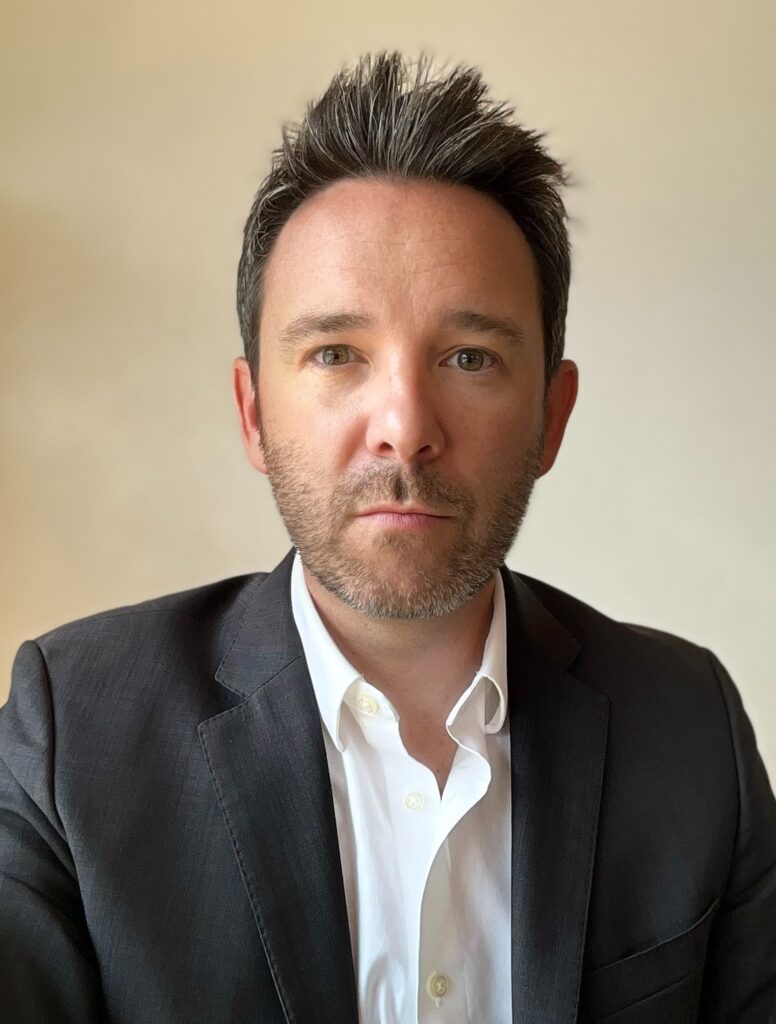
Co-chair Nevin Aiken, assistant professor in the School of Politics, Public Affairs and International Studies, said President Ed Seidel raised concerns about the campus climate and polarization across the country in an email to the UW community before forming the group.
“[Seidel] had talked a lot about wanting the University of Wyoming to emerge as a national leader on taking steps forward on addressing some of these things, and in some ways, before they really came to Wyoming,” Aiken told the Wyoming Truth.
Clear procedures
The establishment of the Working Group comes in the wake of controversies over free speech on hot-button political and social issues that have played out on the Laramie campus in recent years. During UW’s Spring 2022 commencement ceremony, U.S. Sen. Cynthia Lummis (R.-Wyo.) was booed after making comments about sexual identity and the existence of only two sexes. More recently, church elder Todd Schmidt was banned from the Wyoming Union after he displayed a banner that featured the name of a transgender student who’d joined the Kappa Kappa Gamma sorority and stated that the individual is a male. The incident led to student protests on campus last December, questions about free speech and a lawsuit from Schmidt against the university.
The 18-member Working Group was comprised of 10 professors or lecturers, two staff members, two students, three administrators (including Provost Kevin Carman and Dean of Students Ryan O’Neil) and Bradley Bonner of the Board of Trustees. External stakeholders also provided insights, including U.S. Rep. Harriet Hageman (R.-Wyo.), several current and past state lawmakers and former UW instructors. The stakeholders were asked to share their perspectives on Wyoming’s history, spirit and culture for the document’s Statement of Principles.
The statement also explicitly addressed instructors at UW: “the role of the university teacher is not to indoctrinate.”
Other recommendations of the report include establishing clear procedures for handling conflict internally and externally; adjusting onboarding of faculty and orientations for students; implementing the “Wyoming Way” to enhance the practice of civil discourse; and creating a new center for free expression on campus and targeted skill development training for administrators, faculty, staff and students.
When conflict and pressure arise at UW, the group proposed the development of a framework for appropriate response. The framework, once again, ties back to the established principles.
“We don’t just make the principles a set of things we say we believe in, but we look to where we would be acting on those principles when the rubber hits the road,” said co-chair Martha McCaughey, visiting researcher in the Criminal Justice and Sociology department. “That’s also the case for developing a culture that practices these principles.”
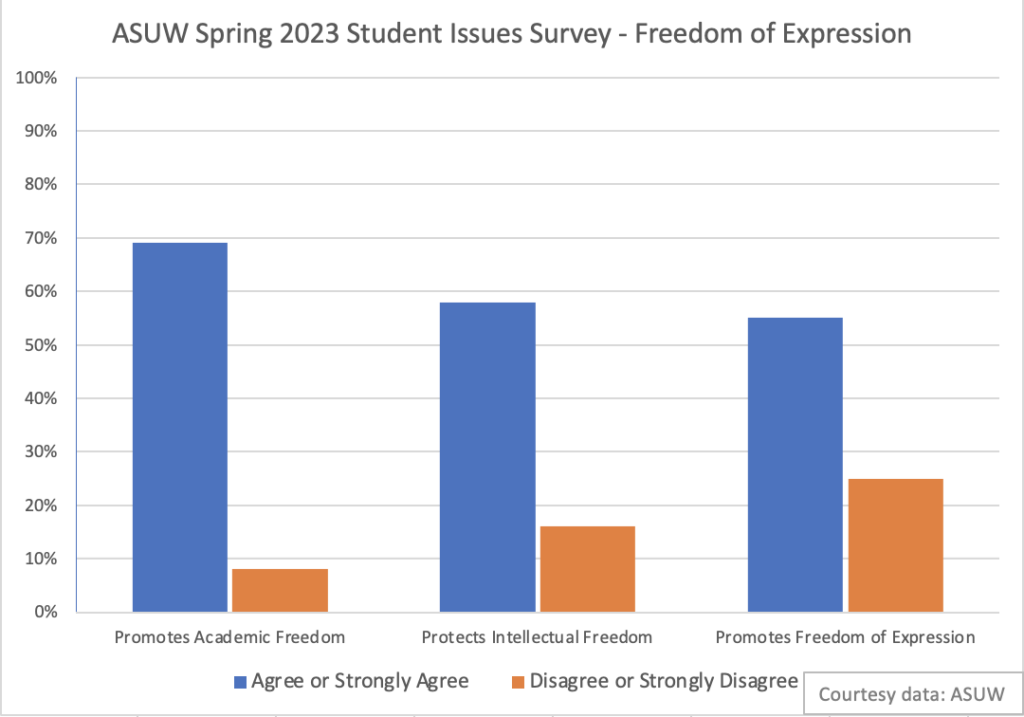
Student reaction, future of expression
Included in the report is a survey conducted by the student government, the Associated Students of the University of Wyoming (ASUW), which featured questions regarding freedom of expression at UW. The survey was distributed to all 11,000 students online during spring semester and received 680 responses.
A majority of the respondents believe UW supports their academic and intellectual freedom and the freedom of expression on campus, as well as offers opportunities for civil discussion.
Rising junior Gabe Saint, who served on the Working Group, said he arrived at the first meeting feeling nervous about potentially clashing with members who did not share his political views. However, he found that all members were aligned toward protect speech and expression.
“As a conservative, we always say that the Republic is at stake, but the committee showed that we’re still able to talk to each other,” said Saint, a political science major from Douglas.
Early on, Saint, who was recently elected to ASUW’s Senate and is the leader of UW’s Turning Point USA conservative student organization, connected with Zebadiah Hall, Vice President for Diversity, Equity and Inclusion. Saint told the Wyoming Truth that they both put an emphasis on grace.
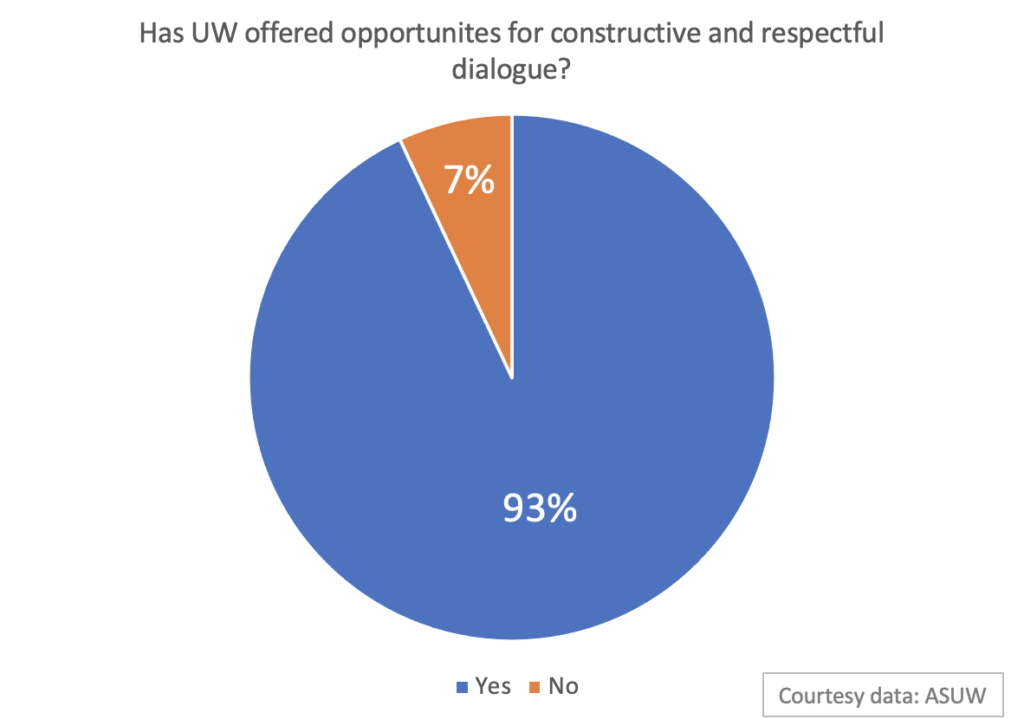
“When it came to the culture on campus, [Hall and I] emphasized grace and [how] we need to acknowledge people as people, not their arbitrary trait,” he said.
Saint said that with a continued focus on civil discourse and freedom of expression on campus, he hopes to host events, such as civil student debates. In the past, Saint’s attempts have been unsuccessful due to contentious topics and a low number of members in the political student organizations following the COVID-19 pandemic.
McCaughey hopes the Working Group’s recommendations will be adopted and help shape UW as a national leader for the freedom of expression. However, the implementation of any recommendation is at the discretion of Seidel and the UW administration.
“I think that the University of Wyoming could be known as a university that really champions intellectual freedom, free expression and academic freedom and be known as a place that I think it is, a place where people respect each other,” she said.
As for Aiken, he noted that the freedom of expression is essential to higher education.
“This is what a university’s all about,” he said. “It’s about the exchange of ideas, not always necessarily agreeing with one another, but learning from that, growing and building on that.”



